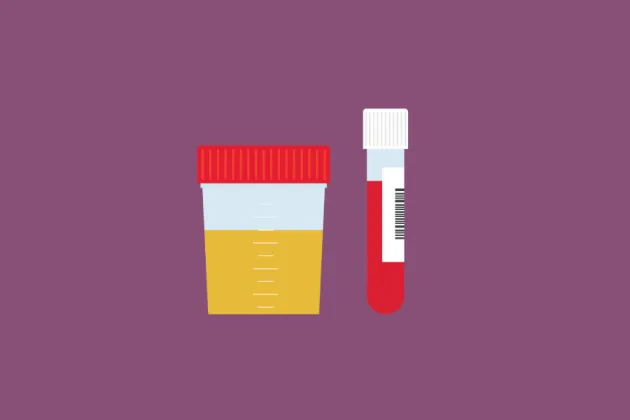Why Confidential STD / STI Testing Matters: Services at Obria Medical Clinics, Lebanon, OR
Confidentiality is one of the most significant aspects of healthcare, particularly when it comes to sexually transmitted infections. Many individuals hesitate to seek help because of stigma, fear of judgment, or uncertainty about how their information will be handled. For communities to be healthier, it is crucial that testing is approached with both sensitivity and discretion. Access to reliable care allows people to take control of their health and prevent further spread of infections. We will explore why confidential testing for sexually transmitted infections is vital and how services at Obria Medical Clinics in Lebanon, OR, create a safe space for individuals to seek the care they need without fear or hesitation.
The Importance of Privacy in STD / STI Testing
When it comes to health issues that can impact both individuals and entire communities, confidentiality ensures that people feel comfortable seeking medical attention. Sexually transmitted infections often carry an unfortunate social stigma, which can prevent individuals from accessing the testing and treatment they need. Privacy safeguards enable people to get tested without worrying about their information being shared. For many, this assurance becomes the deciding factor in whether they pursue care. Without private testing environments, infections can go undiagnosed and untreated, contributing to long-term health complications such as infertility, organ damage, or chronic pain.
Additionally, undetected infections can unknowingly be passed on to others. By protecting confidentiality, clinics provide individuals with reassurance that their choices will remain personal, encouraging more people to prioritize their health. This, in turn, promotes healthier communities by reducing transmission rates and ensuring that those affected can manage their conditions with dignity. Confidentiality not only fosters trust but also empowers individuals to make informed decisions about their health without fear of exposure or judgment. Access to std testing at Obria Medical Clinics Lebanon reinforces this sense of security, showing patients that they can seek care in a private and supportive environment that values their well-being.
Reducing Barriers to Testing through Trust
Trust plays an essential role in healthcare, especially when dealing with infections that people may be embarrassed to discuss. Fear of gossip, misinterpretation, or public judgment often deters people from getting tested. Confidential care helps remove these barriers by ensuring individuals know their medical information will remain private. This sense of security encourages people to take the proactive step of scheduling a test. Without such reassurance, many avoid clinics altogether, allowing infections to spread silently. Trust also strengthens the relationship between patients and healthcare providers.
When individuals believe their privacy will be respected, they are more likely to speak openly about symptoms, concerns, and behaviors that are relevant to accurate diagnosis and treatment. This transparency ensures providers can deliver appropriate care and guidance. Confidentiality therefore works as a bridge, connecting individuals to resources that can protect both their personal health and the well-being of those around them. At facilities, confidentiality is more than a policy—it is part of building trust with the community they serve.
Supporting Early Detection and Treatment
One of the key reasons confidential STD and STI testing matters is that it encourages early detection. Many infections do not present obvious symptoms, which means individuals may carry them for long periods without realizing it. Confidential testing makes it easier for people to seek screening without fear, leading to earlier diagnoses. Early detection is critical because it allows for timely treatment, reducing the risk of long-term complications and preventing further spread.
For example, infections like chlamydia and gonorrhea can cause reproductive health issues if untreated, while conditions such as HIV require consistent monitoring and care to manage effectively. Confidential testing environments reassure patients that even if results require follow-up care, their privacy will remain intact throughout the process. This assurance can motivate people to return for routine screenings, creating a cycle of prevention and timely intervention. When communities normalize confidential testing, the result is a healthier population that is better informed about their health status and capable of taking proactive measures to protect themselves and others.
Empowering Individuals with Knowledge and Resources
Confidential STD and STI testing is not only about identifying infections—it is also about equipping individuals with knowledge and resources. Education plays a central role in prevention, and testing provides an entry point for learning about safe practices, treatment options, and lifestyle choices that promote better health. Confidential services give individuals the opportunity to ask questions openly, knowing their concerns will remain private. This creates an environment where people feel safe to discuss their personal lives and receive guidance that is tailored to their situation.
For instance, someone may learn about prevention strategies such as condom use, vaccinations, or the importance of regular testing in new relationships. When individuals are empowered with information, they are more likely to make decisions that protect their well-being. Clinics that prioritize confidentiality not only deliver medical services but also provide education that strengthens community health. By keeping conversations private, they encourage honest dialogue, which is key to long-term prevention and care. Obria Medical Clinics in Lebanon, OR, demonstrates this approach by combining testing with supportive guidance, ensuring that patients leave not just with results, but with the tools to make informed decisions.
Confidential STD and STI testing is essential for both individual health and broader public well-being. By ensuring privacy, clinics encourage more people to seek timely testing and treatment, which reduces long-term complications and transmission rates. Confidentiality builds trust, empowers individuals with knowledge, and provides a safe environment for open conversations about prevention and care. The work being done in Lebanon, OR, highlights how confidentiality can remove barriers to care, foster healthier lifestyles, and reduce stigma surrounding sexual health. In doing so, confidential testing helps ensure that individuals can take control of their health with dignity, creating stronger and healthier communities overall.






